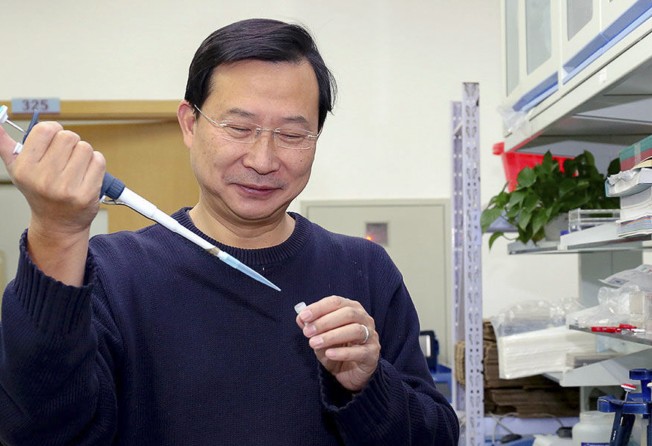Chinese neuroscientist cries foul after ‘arrogant’ US embassy refuses him a visa … again
Dean of Peking University’s School of Life Sciences had been invited by the National Science Foundation to attend a workshop in Washington

A Chinese neuroscientist who once held US citizenship has accused the US embassy in Beijing of arrogance after he was turned down for a visa – the latest in a series of denials he has experienced from the embassy.
Rao Yi, the dean of science at Peking University, said he had been invited by the National Science Foundation (NSF), a government agency based in Alexandria, Virginia, to attend a science workshop on July 23 and 24 in Washington.
But his plans were scuppered when his visa application was rejected, possibly as a result of the tighter screening process introduced last month for Chinese academics and students in the fields of science and hi-tech manufacturing.
“Most embassies try to make more friends for their countries, [but] the US embassy is arrogant,” Rao told the South China Morning Post.
“I am invited by the NSF, a government agency, but the State Department is taking the opposite path,” he said. “This will have a negative impact for the US.”
In a report by Science magazine, Rao said he had attended an interview at the embassy on Monday, during which he was asked to provide an updated copy of his résumé and travel schedule.
A spokesman for the mission in Beijing told the Post he could not discuss the details of individual visa cases.
Under the new rules, Washington reduced the maximum length, from five years to one, of the visas that can be granted to Chinese graduate students who want to continue their studies or research in America in the fields of aviation, robotics or advanced manufacturing.
The restrictions do not apply, however, to those working in neuroscience.
Rao, 56, earned his doctorate in neuroscience in 1991 at the University of California, San Francisco (UCSF), before going on to complete a postdoctoral programme at Harvard University.
He later joined the faculty at Washington University in Missouri, where he worked for 10 years, and successfully applied for US citizenship.
In 2007, Rao returned to China and took up the dean’s job in Beijing he holds to this day. He also surrendered his US citizenship, but continued to travel to his former home for business and pleasure.
Those trips came to halt in 2016, however, when he was denied a visa to enter the US to attend a reunion at his alma mater in San Francisco, the Science report said.
It was the same story when he applied for a visa so he could attend a conference at the world-renowned Massachusetts Institute of Technology in Cambridge and also visit his daughter, a US citizen.
Despite his latest disappointment, Rao said that being turned down for a US visa would not have an impact on his research work.
With Chinese President Xi Jinping setting his sights on making the country a major player in the field of hi-tech manufacturing, Washington has increased its scrutiny of a competitor it has described as a threat to national security.